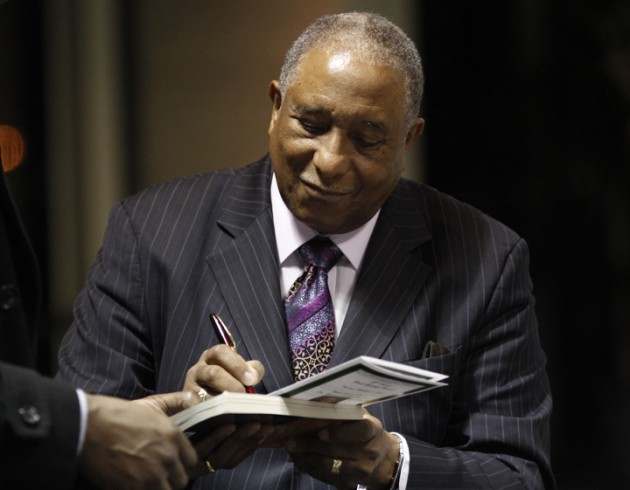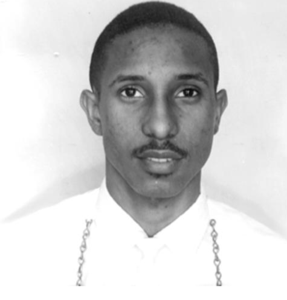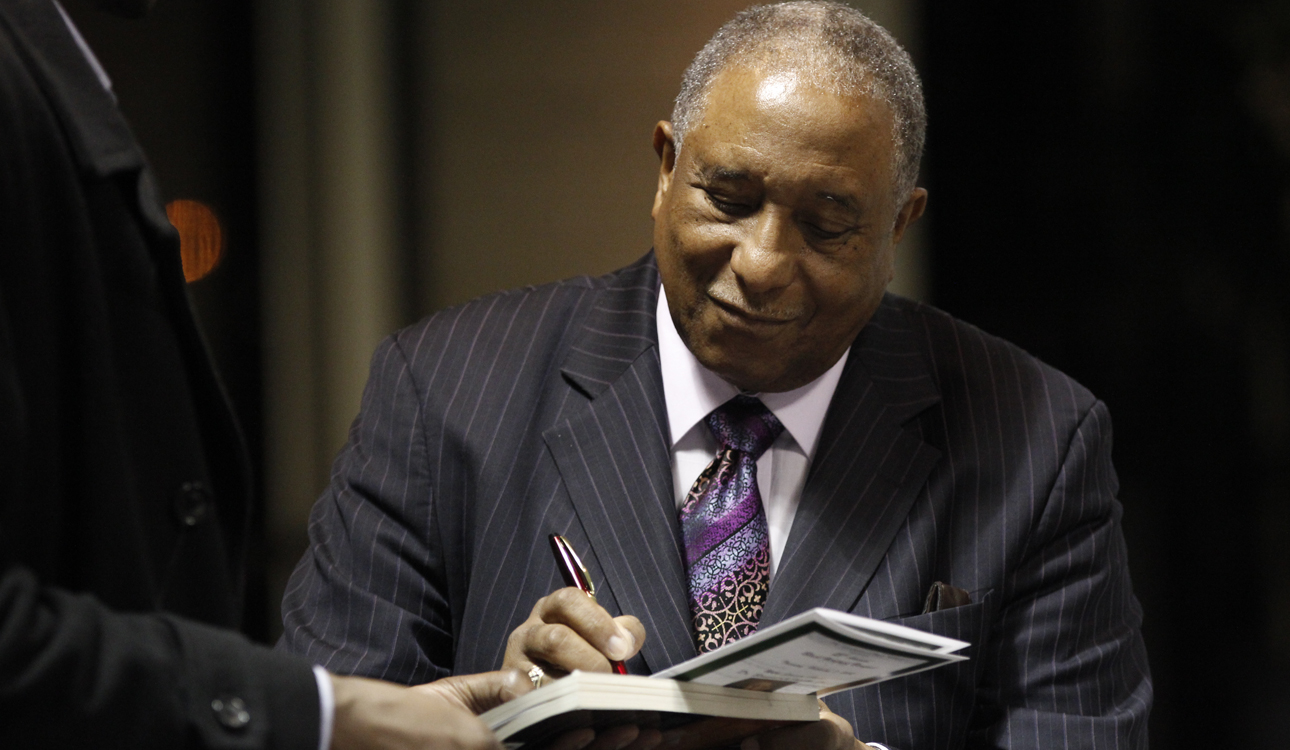

Via TwHistory
By Rob Bradfield
Staff Writer
Students, faculty and guests gathered on the top floor of the Hankamer School of Business to hear a leader in the fight against segregation speak Tuesday evening.
Dr. Bernard LaFayette, Jr., one of the lesser-known heroes of the Civil Rights Movement, spoke Tuesday at the Association of Black Students’ 25th Annual Black Heritage Banquet.
“We chose Dr. LaFayette because of his involvement in the Civil Rights Movement, and we felt that he would inspire students to use the opportunities they’ve been given to make positive changes in our community,” Daphne McGee, ABS Banquet Chair, said.
LaFayette has been an advocate of non-violence and active member of organizations such as the Student Nonviolent Coordinating Committee, the Southern Christian Leadership Conference, and the American Friends Service Committee. Before he began telling his own story, he told the audience how impressed he was by the students he had met so far.
“I can tell from observation that you have something special here, and I know it when I see it; I can feel it when I close my eyes,” LaFayette said.
LaFayette’s life story reads like a history of the Civil Rights Movement. It began after an incident involving his grandmother and the segregated streetcars of Tampa, Florida. Even now LaFayette remembers how streetcar drivers would often drive off with black passenger’s money while they were boarding, and the decision that would set his life on the path towards non-violent activism.
“I said to myself, ‘when I get grown, I’m going to do somehting about this problem’,” Lafayette said.
He made his first steps into activism while studying at the American Baptist College in Nashville. While there he worked odd jobs, including washing pots at a local lunchroom. When the Nashville sit-ins began in 1960, LaFayette found himself protesting in the very restaurant he worked. LaFayette lost his job and joined the movement in earnest.
“I had a job, but I had a bigger job to do; not just washing pots, but changing the lives of people,” LaFayette said.
After Nashville, LaFayette went on to head the Freedom Riders in Selma, Alabama with the SNCC, and work with Dr. Martin Luther King Jr. at the SCLC in Atlanta. LaFayette vividly remembers King’s “mountaintop” speech, and the room at the Lorraine Hotel where King was staying in Memphis. In that hotel, King charged LaFayette to continue the work of the movement and institutionalize the philosophy of non-violence across the nation. After that, LaFayette was sent ahead to Washington, D.C., and Dr. King was assassinated outside the hotel room where he and LaFayette had spoken just days before.
“That’s why I do what I do today, to fulfill the last dream that Martin Luther King had,” Lafayette said. Since then LaFayette has been across the world spreading the practice of non-violence. He has helped reform prisons in Colombia, and has most recently been invited to train Afghani security forces. LaFayette’s life has been dedicated to combating the same discrimination he fought in the 1960’s, which he now calls “Childism.” With the occasional cry of support from the audience, LaFayette bound together the struggles of minorities, immigrants, women, the elderly and third world countries.
“It’s not about race, it’s about whether you’re going to respect another humanbeing,” LaFayette said.






